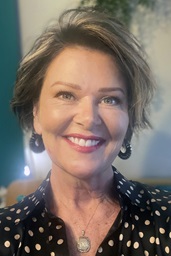Zimbabwe has declared a state of emergency after a cholera outbreak in the capital city of Harare killed 20 people and left more than 2,000 infected. Public gatherings have been banned in order to contain the spread of the disease.
That ban led Glenview United Methodist Church to close its doors.
Glenview, a high-density suburb of Harare, is at the epicenter of the outbreak. The area is vulnerable to cholera because of inadequate supplies of safe piped water, which has led people to use alternative, unsafe supplies such as wells and boreholes.
“We have suspended all gatherings at Glenview UMC,” said the Rev. Josephine Bopani, district superintendent for the Harare Central District. “We are on high alert monitoring the situation in the surrounding areas, to see if there is need to close doors as well.”
The Rev. Varaidzo Masukume, pastor-in-charge at Glenview United Methodist, also said the church is sending out health information.
“We have not had cases of infection from our members but our community has many cases of people infected, some lives have been lost and we have funerals,” said Masukume. "We are urging everyone to exercise extra care with their hygiene and avoid some of the traditional practices, such as shaking of hands at funerals.”
Cholera is an acute, waterborne, diarrhoeal disease that is preventable if people have access to safe water and sanitation and practice good hygiene — but can kill within hours if left untreated.
The disease is a major public health problem in the African region. The deaths have raised fears of a repeat of the 2008 cholera outbreak that killed more than 4,000 people. Recently, health ministers from the region committed to ending cholera outbreaks by 2030 by implementing key strategies, and 47 African countries adopted the Regional Framework for the Implementation of the Global Strategy for Cholera Prevention and Control.
The Glenview church, which has a membership of about 1,200, is communicating through mobile text messages and WhatsApp group platforms, sending alert messages and tips on how to avoid cholera and typhoid, and when to go to the clinic.
"We continue to warn the members to practice utmost hygiene by always washing their hands after using the toilet and washing fruits and vegetables before eating them,” said Masukume.
The Rev. Tinei Chiwara, Harare Central District connectional ministries director, urged members to follow the instructions of the authorities as the government seeks to contain and overcome this outbreak.
A WhatsApp group that connects health chairpersons from all circuits in the district has been formed. Circuits are giving daily reports of what is happening in their communities. Information is shared on how to avoid cholera and what to do when one is infected. This information is cascaded down to all members through circuit communications channels.
The Rev. Alan Gurupira, administrative assistant to the bishop, said the emergence of the disease is a wake-up call that needs attention as The United Methodist Church focuses on global health.
“The church is to continue teaching on the prevention of cholera spreading by regular hand-washing, drinking only safe water, washing food, cooking it thoroughly and avoiding shaking hands,” said Gurupira.
The Zimbabwean government is working with international partners to rapidly expand recommended cholera response actions, including increasing access to clean and safe water in the most affected communities and decommissioning contaminated water supplies. Authorities and partners are also intensifying health education to ensure that suspect cases seek care immediately and establishing cholera treatment centers closer to affected communities.
Gurupira encouraged mission hospitals and clinics to take part in the fight against cholera outbreaks in the country.
“As a church we will do our best to curb the spread of the disease,” he said.
Muzerengwa is a communicator for the Zimbabwe East Conference.
News media contact: Vicki Brown, news editor, [email protected] or 615-742-5469. To read more United Methodist news, subscribe to the free Daily or Weekly Digests.
Like what you're reading? Support the ministry of UM News! Your support ensures the latest denominational news, dynamic stories and informative articles will continue to connect our global community. Make a tax-deductible donation at ResourceUMC.org/GiveUMCom.




